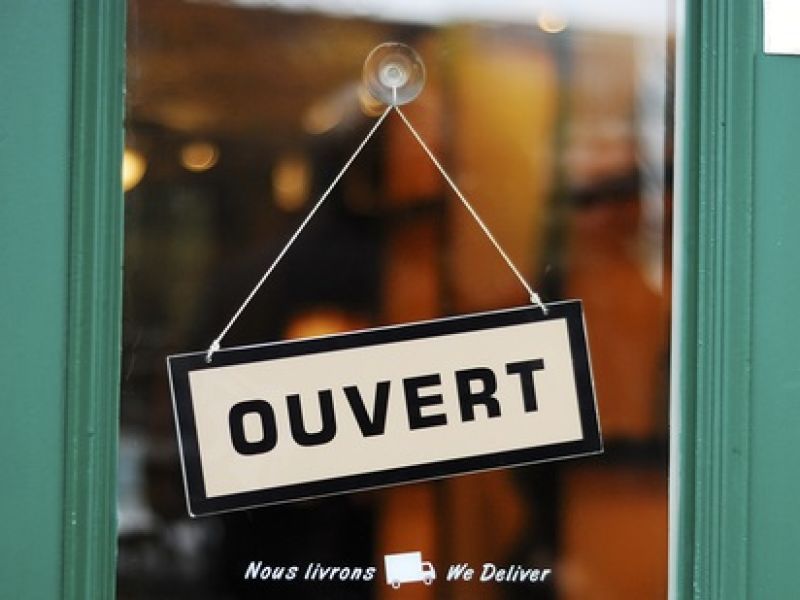Doing business across borders can be difficult for a number of reasons. Aside from the sheer logistics of talking across time zones, there are also distinct cultural differences that can lead to unfortunate misunderstandings and faux pas. While these tend to be minor, they can colour a conversation or a first impression - and potentially lead to you missing out on a deal, or starting your new venture out on the wrong foot.
Scandinavia - that’s Sweden, Denmark and Norway - isn’t one homogeneous block, but the three countries (and fellow ‘Nordics’ Finland and Iceland) do share common histories and culture. While it isn’t one that will be completely alien to businesses from the Anglosphere, there are unique quirks that are worth considering. Here then are our 8 quick tips for doing business in Scandinavia, and making sure you make the right impression with partners, clients and customers.
1. Don’t beat around the bush
As is common among many northern European countries, Scandinavians favour directness over faff and bluster. There is very little ceremony when conducting business in this part of the world, which means there isn’t much to remember. But it might also clash with your natural desire to be reserved, over-polite and over-cautious in case you make a mistake.
Related article: What you need to know about Denmark’s work culture
Try to suppress these instincts, and avoid being excessively polite or overly deferential. Instead, get to the crux of what you want to discuss, and be transparent in what you want from whoever you’re speaking to. They will appreciate your honesty and candour, and won’t have to decipher anything you’re saying, allowing you to come to a clearer understanding and agreement.
2. Respect the boundaries of work
It’s no coincidence that Scandinavian countries are both among the happiest on Earth, and have the clearest division between work and personal life. People in the region tend to work hard, but also expect that work to end when the working day does. This is unlike some other countries where working hours can be a guideline rather than a rule, or where days can be stretched when required.
In short, don’t send emails or call people in Scandinavian countries outside of working hours, and definitely do not expect a response. While you might think this confers an eagerness to work together or on a particular project - or simply not think about it at all - it’s likely to actually come across as overbearing, overeager, and generally irritating. Everything you need to do can be achieved in working hours.
3. Be friendly (but not too friendly)
Friendliness isn’t always a natural partner to straightforwardness (naming no countries), but it is in Scandinavia. While there are introverts and extroverts everywhere, it tends to be the case that businesspeople in the region are very friendly and approachable. This can lead to the breaking down of some usual business barriers, which can help to build relationships more quickly.
This shouldn't be a licence to get too familiar, however. The usual rules still apply, and you should treat business relationships as exactly that, and not overstep your boundaries. Scandinavia simply embraces being yourself at work, rather than a buzzword-spewing automaton - although if you are a buzzword-spewing automaton, that’s probably fine too.
4. Dress smart-casual (emphasis on smart)
The way you dress is a big part of the way you present yourself to potential clients and partners, and the first impression they will get. Smart is always a must when meeting people for the first time, as it confers professionalism (that means you too, tech CEOs). But being too buttoned-up can set expectations for people that may be difficult to overcome.
Related article: The best cities to start a business in Sweden
Part of the more casual and realistic nature of Scandinavian business conduct is dressing sensibly. There’s nothing wrong with a suit, but don’t overdress for the sake of it if it’s a hot day, and don’t avoid extra layers if it’s a cold one (as it’s likely to be in Norway). Instead, wear something that’s neat, fits well and doesn’t give off any unnecessary vibes - let your personality and prep do the talking.
5. Avoid leaning into stereotypes
Stereotypes are good fodder for late-night comedy, but they don’t tend to wash that well with the people they’re about. They definitely aren’t something that you should slip into conversations with people from that country - even if those people are as generally easy-going and difficult to offend as Scandinavians tend to be.
Having seen a lot of scandi-noir doesn’t make you an expert on Scandinavia, and it definitely isn’t a great ice breaker for a business conversation. Given the high level of English proficiency in Scandinavian countries - and a large amount of exported UK and US TV shows - they probably know a lot more about your country than you do about theirs. Be deferential to that, and stay schtum unless they bring something up.
6. Don’t give gifts (they’re illegal*)
* Ok, that last bit is an over-dramatisation - but they can be. Strict anti-corruption laws across Scandinavia mean that a lavish gift can be misinterpreted as a way to win someone’s favour. As a result, gifts in general are not part of the business culture, and attempting to give one - even a fairly token gift to mark a done deal or new partnership - may be rebuffed.
This is not to say that you can’t give gifts at all, but that you should be especially careful when giving them. Gifts can also carry subtext that may be interpreted in a certain way, such as why you would be giving someone a particular book. It’s best to avoid them, but if you do give them, make them small, do it in earnest, and know the person you’re giving it to.
7. Harness the power of the coffee break
Coffee breaks are an ingrained part of the business culture in much of Scandinavia. In Sweden, these breaks are called “fika”, which translates both as the act of having coffee and hankering after something. Fika is a common way to break up the day and socialise with colleagues, with everyone taking 10 mins out for a drink and a sweet snack.
If you’re expanding to Sweden or conducting business there, this is a great way to ingratiate yourself, learn about your colleagues or business partners, and take your mind off work. Participation isn’t mandatory, but it is generally expected, as who wouldn’t want coffee and a pastry? Deciding to work instead won’t win you any plaudits - you’ll just look a bit weird.
8. Govern by consensus
You’ve probably seen a rise in meetings since Zoom made them easier, but this was already a trend in Scandinavia. A long history of consensus in government and social matters has made decision by committee not just desirable, but largely essential. Managers and CEOs are expected to make decisions with a broad level of input, acting in a way that is representative of everyone’s interests.
Related article: The best cities to start a business in Denmark
This doesn’t mean that there isn’t room for personalities and individual responsibility in a Scandinavian business, but it does mean that there is an expectation that people’s voices and opinions should be heard. Embracing the benefits of a diverse array of opinions, experiences and perspectives should be part of your business strategy in the region, and something you look to harness, rather than fight against.
None of these tips for doing business in Scandinavia are hard-and-fast rules, but they should give you a general idea of Scandinavian business culture, and what to expect when you arrive. The basic rules are the same as they are anywhere else: be considerate, speak clearly and concisely, avoid insulting anyone - and accept a coffee break without question.
For more information on companies in Scandinavia, click on our pages for Norway, Sweden and Denmark.






